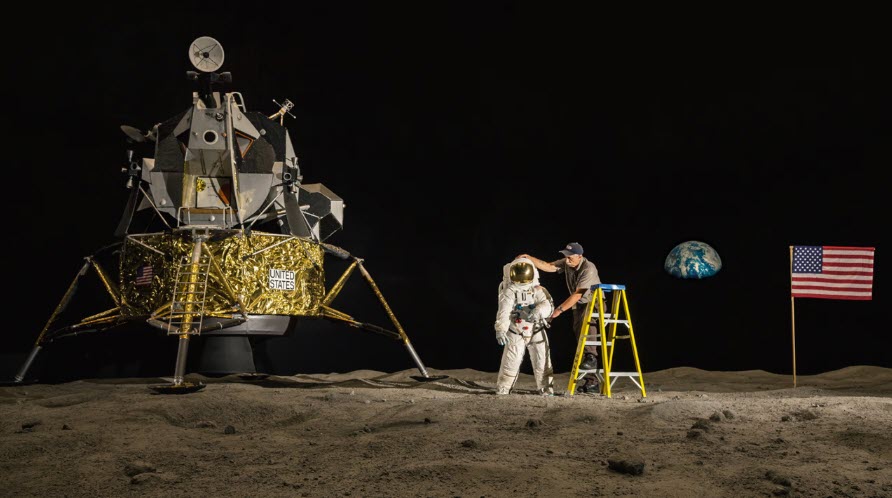대구외고 2학년 기말고사 대비(The Age of Disbelief)-(3)
대한민국 1% 영어강사, 찍신 이상엽 쌤은 내신과 수능에 최적화된 실전문제를 제공합니다. 이상엽 쌤은 대구외고 수험생들을 위해 선생님들의 출제경향을 정확히 분석해 맞춤예상 문제를 제공합니다. 본 문제에 대한 궁금한 점 또는 영어가 어렵고 고민이면, 010-2818-6994로 연락주세요.
Struggling for Truth
[20~27] 다음 글을 읽고, 물음에 답하시오.
[K] Sometimes scientists fall short of the ideals of the scientific method. Especially in biomedical research, there’s a disturbing trend toward results that can’t be reproduced outside the lab that found them. Francis Collins, the director of the National Institutes of Health, worries about the “secret sauce”—specialized procedures and customized software—that researchers don’t share with their colleagues. But he still has faith in science.
[L] “Science will find the truth,” Collins says. “It may get it wrong the first time and maybe the second time, but ultimately it will find the truth.” That aspect of science is another thing a lot of people have trouble with. To some climate change skeptics, for example, the fact that a few scientists in the 1970s were worried (quite reasonably, it seemed at the time) about the possibility of a coming ice age is enough to (A) the concern about global warming now.
[M] In 2014, the United Nations’ Intergovernmental Panel on Climate Change, which consists of hundreds of scientists, released its fifth report in the past 25 years. This one repeated louder and clearer than ever the consensus of the world’s scientists: The planet’s surface temperature has risen by about 1.5 degrees Fahrenheit in the past 130 years. Moreover, human actions—including the burning of fossil fuels—are extremely likely to have been the dominant cause of the warming since the mid-20th century. Many people, however, (B) doubts about that consensus.
[N] Americans, for example, fall into two basic camps, says Dan Kahan of Yale University. Those who are more egalitarian and community-minded are generally suspicious of industry. They tend to think it’s up to something dangerous that calls for government regulation; they’re likely to see the risks of climate change. In contrast, people with a hierarchical and individualistic mindset respect leaders of industry and don’t like government interfering in their affairs. They tend to reject warnings about climate change because they know that accepting them could lead to some kind of tax or regulation to limit emissions.
[O] In the United States, an individual’s view on climate change tends to identify them as belonging to one or the other of these two opposing tribes. When we argue about it, Kahan says, we’re actually arguing about who we are, what our crowd is. We’re thinking: People like us believe this. People like that do not believe this. For a hierarchical individualist, Kahan says, it’s not irrational to reject established climate science. This is because accepting it wouldn’t change the world, but it might get them thrown out of their tribe. Science appeals to our rational brain, but our beliefs are motivated largely by emotion—and the biggest motivation is remaining tight with our peers.
20. 윗글의 제목으로 가장 적절한 것은?
① Scientific Truth, Belief, and the Conflict of Group Identity
② Scientists’ Unwillingness to Share Experimental Results
③ Why Americans Debate Climate Change
21. In the second sentence of paragraph M, one refers to?
a. report
b. panel
c. year
d. scientist
22. 윗글의 빈칸 (A), (B)에 들어갈 말로 가장 적절한 것을 고르시오.
(A) (B)
① discredit …… retain
② emphasize …… celebrate
③ reinforce …… eliminate
④ dismiss …… resolve
⑤ complicate …… ignore
23. 윗글의 밑줄 친 it’s up to something dangerous that calls for government regulation 이 의미하는 바로 가장 적절한 것은?
① Industry is doing something risky that requires government control
② Industry is inventing new products that help the government
③ Industry is following all the rules set by the government
24. The following sentence would be best placed at the end of which paragraph?
(They believe global warming is a hoax, used as a threat by climate activists to attack industry and the free market.)
a. Paragraph K b. Paragraph M
c. Paragraph N d. Paragraph O
25. 윗글의 빈칸에 들어갈 말로 가장 적절한 것을 고르시오.
① is remaining tight with our peers
② comes from scientific evidence
③ is based on political leaders
26. What does the author NOT say about the scientists who review the work of other scientists? Please format the question as a quiz question like a, b, c, d. Answer and explain why.
a. They sometimes cannot reproduce the results of other scientists’ experiments.
b. They often do not have access to all the specialized procedures and software used in the original research.
c. They are motivated by the desire to remain accepted by their social group.
d. They are responsible for the consensus presented by major scientific panels like the IPCC.
27. 윗글에 대한 설명이나 추론으로 가장 적절하지 않은 것은?
① Scientific consensus on climate change is often challenged due to emotional, tribal, and cultural identities rather than evidence.
② People’s acceptance of climate science is strongly influenced by their social group and personal values, not just facts.
③ Most Americans reject climate science because scientists intentionally hide important data from the public and policymakers.
④ The reproducibility crisis in science can undermine public trust, but the scientific method ultimately self-corrects over time.
⑤ Climate change skepticism in the U.S. is tied to political and cultural divisions, not simply a lack of information.
[해석]
[K] 때때로 과학자들은 과학적 방법론의 이상에 미치지 못하는 경우가 있다. 특히 생명 의학 연구 분야에서는, 한 연구실에서 얻은 결과가 다른 곳에서는 재현되지 않는 우려스러운 경향이 있다. 미국 국립보건원(NIH) 소장인 프랜시스 콜린스는 동료 연구자들과 공유되지 않는 “비법”—특수화된 절차와 맞춤형 소프트웨어—에 대해 우려하고 있다. 하지만 그는 여전히 과학에 대한 믿음을 가지고 있다.
[L] “과학은 진실을 찾을 것입니다,”라고 콜린스는 말한다. “처음이나 두 번째 시도에서는 틀릴 수 있지만, 궁극적으로는 진실을 찾아낼 것입니다.” 많은 사람들이 이해하지 못하는 것도 바로 이 점이다. 예를 들어 일부 기후 변화 회의론자들은 1970년대에 몇몇 과학자들이 (그 당시에는 상당히 합리적으로 보였던) 빙하기 도래 가능성을 우려했던 사실만으로도 현재의 지구 온난화에 대한 우려를 불신하는 이유로 삼는다.
[M] 2014년, 유엔 산하의 기후변화에 관한 정부간 협의체(IPCC)는 지난 25년 동안 다섯 번째 보고서를 발표했다. 이번 보고서는 이전보다 더 강하고 명확하게 세계 과학자들의 공통된 견해를 반복했다. 즉, 지난 130년 동안 지구 표면 온도는 약 1.5도 화씨 상승했다는 것이다. 더욱이, 화석 연료의 연소 등 인간의 활동이 20세기 중반 이후 온난화의 주된 원인일 가능성이 매우 높다고 밝혔다. 그럼에도 불구하고, 많은 사람들은 이러한 합의에 대해 여전히 의심을 품고 있다.
[N] 예를 들어 미국인들은 두 가지 기본적인 진영으로 나뉜다고 예일대의 댄 케이한은 말한다. 보다 평등주의적이고 공동체 지향적인 사람들은 산업계에 대해 본능적으로 의심을 품고 있으며, 산업계가 위험한 일을 하고 있으므로 정부의 규제가 필요하다고 생각한다. 이들은 기후 변화의 위험을 인식하는 경향이 있다. 반면, 위계적이고 개인주의적인 사고방식을 가진 사람들은 산업계의 지도자들을 존중하며 정부가 그들의 활동에 간섭하는 것을 싫어한다. 이들은 기후 변화에 대한 경고를 거부하는 경향이 있는데, 그 이유는 이를 받아들일 경우 배출량을 제한하기 위한 세금이나 규제가 도입될 수 있기 때문이다.
[O] 미국에서는 개인이 기후 변화에 대해 어떤 견해를 가지고 있는지가 그 사람이 어느 진영에 속하는지를 나타내는 지표가 되는 경우가 많다. 케이한에 따르면, 우리가 이 문제를 두고 논쟁할 때 사실은 ‘우리는 누구인가’, ‘우리 집단은 무엇을 믿는가’를 두고 논쟁하고 있는 것이다. 우리는 이렇게 생각한다: 우리 같은 사람들은 이것을 믿는다. 저런 사람들은 이것을 믿지 않는다. 케이한은 말한다. 위계적 개인주의자에게 있어서, 확립된 기후 과학을 거부하는 것은 비합리적인 행동이 아니다. 왜냐하면 이를 받아들인다고 세상이 바뀌는 것도 아니고, 오히려 자기 소속 집단에서 밀려날 위험이 있기 때문이다. 과학은 우리의 이성적 사고에 호소하지만, 우리의 믿음은 대부분 감정에서 비롯되며—그 중에서도 가장 큰 동기는 바로 집단과의 유대감을 유지하는 것이다.
정답 및 해설
20. ①
해설: ①은 과학의 자기정정 과정, 재현성 문제, 기후변화에 대한 과학적 합의, 그리고 사람들이 집단 정체성과 신념에 따라 과학적 사실을 받아들이거나 거부하는 심리—를 모두 포괄적으로 담고 있다.
21. a
해설: “one”은 바로 앞 문장에서 “released its fifth report”라고 했으므로, report(보고서)를 대신하는 대명사이다.
22. ①
23. ①
24. d
해설: “그들은 지구 온난화가 사기라고 믿으며, 기후 운동가들이 산업과 자유 시장을 공격하기 위한 위협으로 사용한다고 생각한다.” 괄호 안의 문장은 “지구 온난화 회의론자들”의 신념과 동기를 설명하는 내용이다. 단락 O가 미국에서 개인의 기후 변화에 대한 입장이 두 진영(부류)으로 나뉘며, 각각의 신념 체계와 집단 정체성에 따라 믿음이 달라짐을 설명한다. 괄호의 문장은 바로 이 계층적∙개인주의적 집단의 대표적 신념(즉, 지구 온난화는 사기이며, 산업과 자유시장에 대한 공격의 도구라는 생각)을 명확하게 표현하므로 단락 O의 마지막에 위치하는 것이 자연스럽다.
25. ①
해설: 기후 변화에 대한 사람들의 견해가 과학적 증거에 대한 합리적 분석보다는 사회적 정체성과 집단 소속감에 더 큰 영향을 받는다는 점을 논한다. 문제의 문장은 과학이 이성에 호소하지만, 우리의 신념은 종종 감정적 요인에 의해 형성되며, 그 중 가장 강력한 요인은 자신이 속한 사회 집단이나 “부족”에 속하고자 하는 욕구라는 점을 강조한다.
26. c
해설: a는 생물의학 연구에서 재현 불가능한 결과의 문제를 다루는 단락 [K]에서 언급되었다. b는 단락 [K]에서 언급되며, 연구자들이 공유하지 않을 수 있는 “비밀 소스”를 언급한다. d는 IPCC를 과학적 합의를 검토하고 제시하는 수백 명의 과학자로 구성된 패널로 설명하는 단락 [M]에서 암시된다. 이 글은 과학자들이 서로의 연구를 검토하는 데에 사회적 집단적 동기를 부여하지 않았기 때문에 c가 정답이다.
27. ③
REVIEW TEST
TRUE / FALSE: Guess if 1~7 blow are true (T) or false (F).
1. Some scientists do not always follow the ideals of the scientific method, leading to results that cannot be reproduced by others. ( )
2. Francis Collins believes that science will always get the truth right the first time. ( )
3. The United Nations’ Intergovernmental Panel on Climate Change has reported that human actions are extremely likely to be the main cause of global warming since the mid-20th century. ( )
4. According to the text, most Americans agree on the causes and risks of climate change. ( )
5. People who are more egalitarian and community-minded are more likely to see the risks of climate change and support government regulation. ( )
6. Dan Kahan suggests that arguments about climate change in the United States are often really about group identity rather than scientific facts. ( )
7. For hierarchical individualists, accepting climate science is rational because it helps them fit in with their peer group. ( )
Multiple Choice Quiz
1. According to Francis Collins, what is a problem in biomedical research that affects the reproducibility of results?
(a) Lack of funding
(b) Use of outdated equipment
(c) Researchers not sharing specialized procedures and software
(d) Too many government regulations
2. What does Francis Collins ultimately believe about science?
(a) It always gets things right the first time
(b) It will eventually find the truth, even if it makes mistakes along the way
(c) It is unreliable and often misleading
(d) It should not be trusted with important decisions
3. What is the main conclusion of the 2014 UN Intergovernmental Panel on Climate Change report?
(a) Climate change is not caused by humans
(b) The planet’s surface temperature has remained stable
(c) Human actions are extremely likely the dominant cause of recent global warming
(d) Climate change is only a minor concern
4. According to Dan Kahan, which group is more likely to be suspicious of industry and see the risks of climate change?
(a) Hierarchical individualists
(b) Egalitarian and community-minded people
(c) Scientists
(d) Politicians
5. Why do hierarchical individualists tend to reject warnings about climate change?
(a) They believe climate change is a hoax
(b) They fear government regulation and respect industry leaders
(c) They do not understand the science
(d) They want to protect the environment
6. According to Kahan, what is the primary motivation behind people’s beliefs about climate change?
(a) Careful analysis of scientific data
(b) Desire to protect the environment
(c) Emotional need to remain part of their social group
(d) Personal experience with climate events


